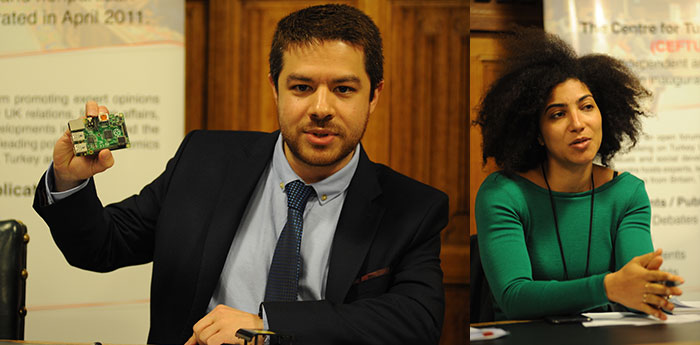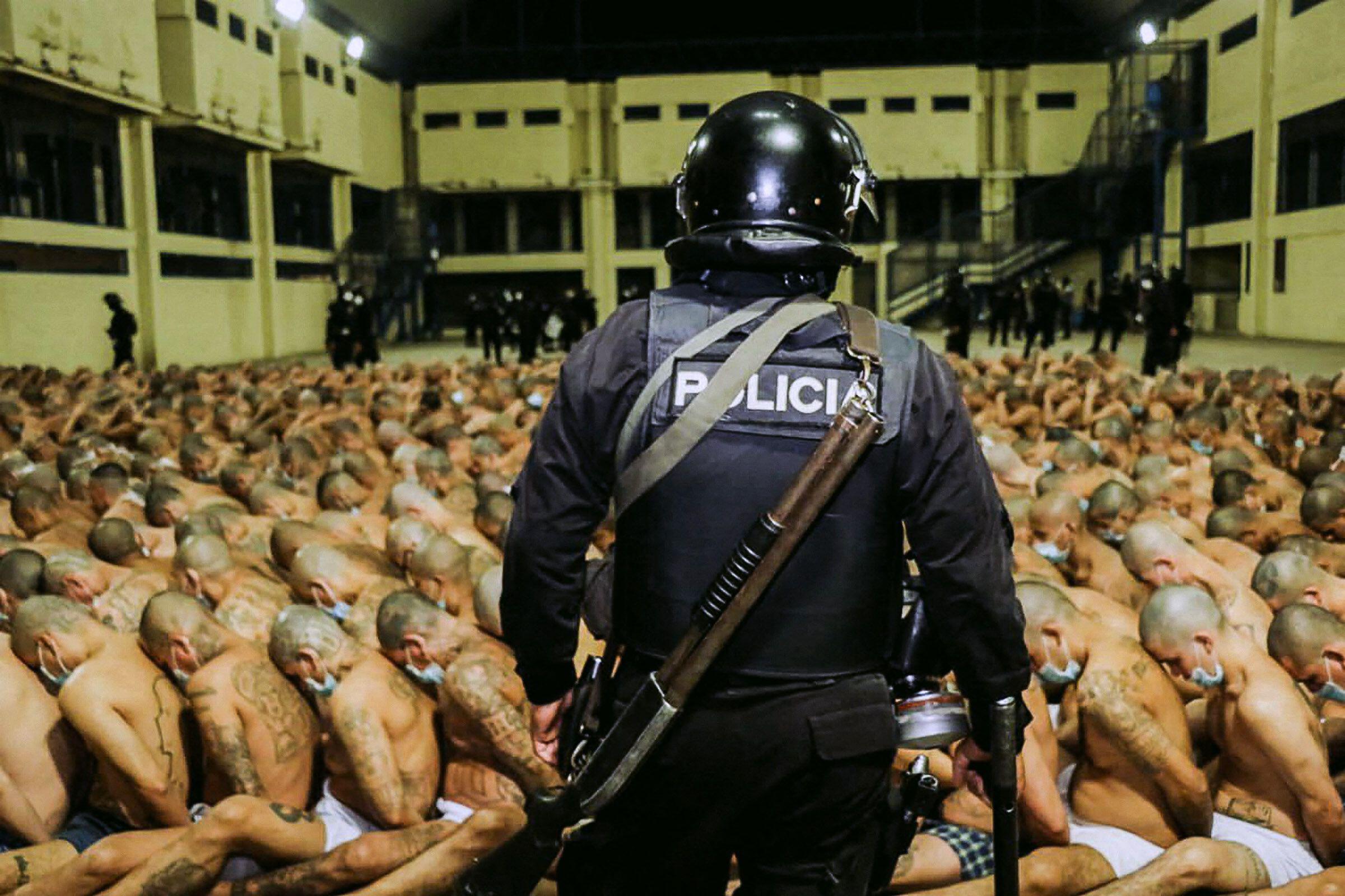[vc_row][vc_column][vc_column_text]

Alp Toker of the 2017 Freedom of Expression Digital Activism Award-winning Turkey Blocks and Index on Censorship head of advocacy, Melody Patry. (Photo: Centre for Turkey Studies)
The Centre for Turkey Studies (CEFTUS) and Index on Censorship held a public forum at the House of Commons on Thursday 20 April 2017 to discuss the impact of the recent Turkish referendum as part of the 2017 Freedom of Expression Awards.
The referendum held on 16 April 2017 saw President Recep Tayyip Erdogan secure 51.3% of the vote to obtain sweeping presidential powers.
Chaired by former PEN International director Sara Whyatt, the debate focused on Turkey’s domestic and foreign policies and what the outcome of the referendum now means for freedom of expression in the European nation. The panel included Guney Yildiz, special adviser to the Foreign Affairs Select Committee, Alp Toker, founder of internet shutdown monitoring organisation Turkey Blocks, winner of the 2017 Freedom of Expression Digital Activism Award, and Index on Censorship’s head of advocacy, Melody Patry.
In his presentation, Yildiz took a broad stance in his observations on the referendum outcome.
The special adviser opposed the view that Turkey’s referendum primarily concerned Erdogan and his drive for increased powers. He claimed that “the movement towards a presidential system was already underway even before the referendum”.
“Something even more important is going on in Turkey, it’s a massive restructuring of the state and it goes beyond Erdogan,” the select committee adviser said.
Yildiz also argued that it was wrong for Turkey to be described as a “polarised society”, or to deem President Erdogan a “polarising figure” following the referendum results. He described Turkey as a “multi-polar country” with a “fragmented opposition” who were already divided among themselves over a host of other issues, divisions which they were unlikely to overcome.
“The proposition that this referendum is the beginning of the end of President Erdogan, in my opinion, is mistaken,” Yildiz said.
Yildiz went on to discuss the impact of the referendum on the Kurdish population, foreign policy and the future of Turkey.
The special adviser concluded: “Winning the presidency is a huge step, but it doesn’t mean that Erdogan is in any lack of challenges. I would say that these challenges are coming mostly from regional tensions, the Turkish economy and other structural changes rather than the Turkish opposition.”
Index’s head of advocacy Melody Patry spoke on the implications of the Turkish referendum on freedom of expression.
Patry explained that before the coup attempt in July 2016, Turkey was “not quite what we’d call a safe haven for free speech”. However, the onset of the coup accelerated the pace and widened the scope of the crackdown on both media freedom and freedom of expression more generally, with the government resorting to methods of intimidation. “We are now talking about not just thousands, but tens of thousands of academics, journalists, students having lost their jobs or being fired or detained,” Patry expressed.
Index’s head of advocacy also highlighted that, since July of this year, 150 journalists have been jailed and 159 media outlets closed in Turkey. These are only the cases that have been recorded due to the difficulties surrounding the monitoring of attacks on the press. “Because it is difficult to monitor, it is also difficult to hold Turkish government to account.”
Before the coup attempt, many journalists were arrested for crimes relating to defamation and terrorism. “These kinds of charges are all the more concerning at a time when after the referendum, Erdogan is talking about reestablishing the death penalty,” said Patry. “We know that being associated with terror and terrorism could potentially put a target on the back or the forehead for the death penalty.”
In presenting his views on the referendum, Turkish-British technologist Alp Toker began by looking at the positives arising from the election. “A huge turnout means huge engagement; people are interested in voting, they are engaged with the political process,” he said.
In contrast to the stance adopted by Yildiz, Toker felt that Turkey had indeed become more polarised. However, the technologist made it clear that this was not a conclusion that should be reached through opinion, but through independent observation — something which Turkey currently lacked. “We’re missing out on something which you might call truth,” he said.
When turning to the work of his organisation Turkey Blocks, which was used to monitor the internet during the election weekend, Toker confirmed that no incidents of mass scale internet shutdowns were identified. This, however, did not equate to the “all clear” for media freedom and security in Turkey. “In fact, some could interpret it as the opposite,” the technologist said. “One of the opinions I heard is that they [Turkish government] don’t feel the need to control the internet because it has other means of controlling opinions.”
In drawing to a close, Toker argued that a better understanding of what kind of freedom was expected in Turkey needed to be established before progress could be made. The technologist said that this was “not a problem to be fixed from the outside” and that a “multi-pronged approach” would need to be adopted in order to solve it. “It’s not going to help if we continue this post-election polarisation,” he concluded. [/vc_column_text][vc_video link=”https://www.youtube.com/watch?v=obmYZsDBu6s”][/vc_column][/vc_row]




